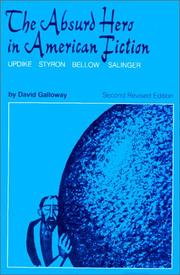| Listing 1 - 2 of 2 |
Sort by
|
Book
ISBN: 9789400604438 9789087283988 9087283989 9400604432 Year: 2022 Publisher: Leiden : Leiden University Press,
Abstract | Keywords | Export | Availability | Bookmark
 Loading...
Loading...Choose an application
- Reference Manager
- EndNote
- RefWorks (Direct export to RefWorks)
This book deals for the first time with the cultural history of media in nineteenth-century Iran, a history that deals with how modern techniques of representation and communication were received in the Iranian Shi'a society. This reception history is examined in religious photography, military reforms, Persian passion plays, Shi'a medicine, and the burgeoning telegraphic culture. The problematic relationship between Shi'a Islam and 19th-century media is conceptualised and contextualised, especially through the lens of the first Polytechnique college (Dar al-Fonun, 1851) in Iran. This college is conceptualised as a media laboratory, where the technological sphere in Iran was fundamentally transforming. It is also contextualised in the age of reform, a period in which the Middle East was undergoing widespread social, political, and military changes. Islamic (art) history, Iranian Studies, and cultural analysis form an interdisciplinary analytic framework to create new knowledge about the historical complexity of nineteenth-century Iran.
Islam --- Shīʿah --- Mass media --- Absurd (Philosophy) --- Chiisme --- Absurde (Philosophie) --- Shīʻah --- Intellectual life --- History --- Religious aspects --- Histoire --- Aspect religieux --- Islam. --- 1800-1899 --- Iran

ISBN: 0292703562 0292703554 9780292768789 0292768788 9780292703551 029276877X Year: 1981 Publisher: Austin (Tex.) University of Texas Press
Abstract | Keywords | Export | Availability | Bookmark
 Loading...
Loading...Choose an application
- Reference Manager
- EndNote
- RefWorks (Direct export to RefWorks)
When The Absurd Hero in American Fiction was first released in 1966, Granville Hicks praised it in a lead article for the Saturday Review as a sensitive and definitive study of a new trend in postwar American literature. In the years that followed, David Galloway’s analysis of the writings of John Updike, William Styron, Saul Bellow, and J. D. Salinger became a standard critical work, an indispensable tool for readers concerned with contemporary American literature. The New York Times described the book as “a seminal study of the modern literary imagination. David Galloway, himself an established novelist, later extensively revised The Absurd Hero to include authoritative discussions of more than a dozen novels which had appeared since the first revised edition was released in 1970. Among them are John Updike’s Couples, Rabbit Redux, and The Coup; William Styron’s The Confessions of Nat Turner and Sophie’s Choice; and Saul Bellow’s Mr. Sammler’s Planet and Humboldt’s Gift. Through detailed analyses of these works, Galloway demonstrates the continuing relevance of his own provocative concept of the absurd hero and provides important insights into the literary achievements of four of America’s most influential postwar novelists.
American fiction --- Heroes in literature --- Absurd (Philosophy) in literature --- Roman américain --- Héros dans la littérature --- Absurde (Philosophie) dans la littérature --- History and criticism --- Histoire et critique --- Roman américain --- Héros dans la littérature --- Absurde (Philosophie) dans la littérature
| Listing 1 - 2 of 2 |
Sort by
|

 Search
Search Feedback
Feedback About UniCat
About UniCat  Help
Help News
News